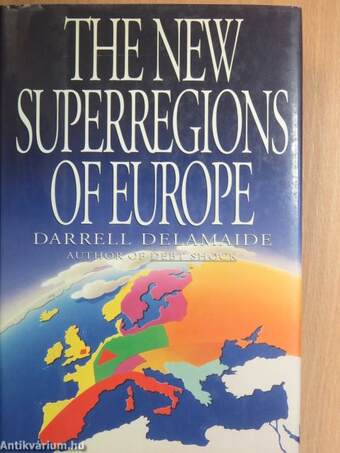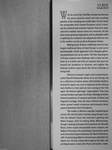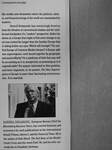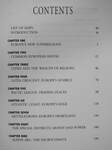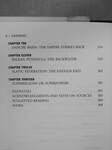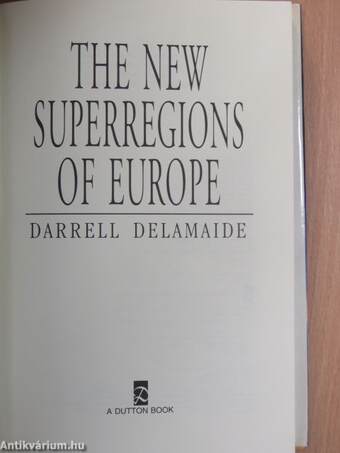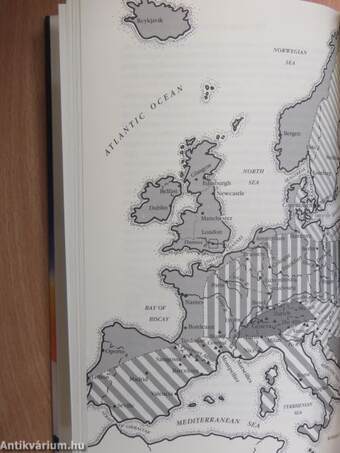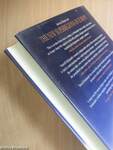1.066.816
kiadvánnyal nyújtjuk Magyarország legnagyobb antikvár könyv-kínálatát

VISSZA
A TETEJÉRE
JAVASLATOKÉszre-
vételek
The New Superregions of Europe
| Kiadó: | Dutton |
|---|---|
| Kiadás helye: | New York |
| Kiadás éve: | |
| Kötés típusa: | Félvászon |
| Oldalszám: | 322 oldal |
| Sorozatcím: | Dutton book |
| Kötetszám: | |
| Nyelv: | Angol |
| Méret: | 24 cm x 16 cm |
| ISBN: | 0-525-93651-3 |
| Megjegyzés: | Néhány fekete-fehér térképpel. |
naponta értesítjük a beérkező friss
kiadványokról
naponta értesítjük a beérkező friss
kiadványokról
Fülszöveg
_ ,. ith the end of the Cold War, Europe has become I I the great question mark and most puzzling paradox of the emerging new world order. On one hand, the steamroller drive toward European unity is level-ing the political and economic barriers that have sepa-rated the member nation-states for centuries. On the other hand, growing regionalism and its attendant strife is splitting the continent into alignments that are new to the modern era but as old as European history.
Making sense of these conflicting currents chal-lenges traditional ideas of what Europe is and can be and demands a fresh appraisal of the changes gather-ing momentum even as we watch. The New Superregions of Europe answers that challenge with a vision as bril-liant as it is bold, and with an analysis that goes far beyond the headlines to illumine and explore the bedrock realities upon which the future of Europe is being built.
Eminent economic expert and renowned jour-nalist Darrell Delamaide allows us to see... Tovább
Fülszöveg
_ ,. ith the end of the Cold War, Europe has become I I the great question mark and most puzzling paradox of the emerging new world order. On one hand, the steamroller drive toward European unity is level-ing the political and economic barriers that have sepa-rated the member nation-states for centuries. On the other hand, growing regionalism and its attendant strife is splitting the continent into alignments that are new to the modern era but as old as European history.
Making sense of these conflicting currents chal-lenges traditional ideas of what Europe is and can be and demands a fresh appraisal of the changes gather-ing momentum even as we watch. The New Superregions of Europe answers that challenge with a vision as bril-liant as it is bold, and with an analysis that goes far beyond the headlines to illumine and explore the bedrock realities upon which the future of Europe is being built.
Eminent economic expert and renowned jour-nalist Darrell Delamaide allows us to see Europe not as a collection of nation-states with familiar borders. Instead he opens our eyes to régiónál unities that go back further in time and are now coming to the fore again. He defines eight large "superregions" that cross national borders and span the former ideological divide. Historical patterns of conquest and trade, of ethnic and linguistic heritage, form the basis of these territories, while current trends in business and economic devel-opment determine their boundaries.
The reader is offered a superbly insightful guid-ed tour. We visit the Latin Crescent, along Europe's sun-belt; the Atlantic Coast, the continent's gateway; the Baltic League, with its trading skills; Mitteleuropa, Europe's pulsing and powerful heartland; the Danube Basin, home of past and possibly future empires; the Balkan Peninsula, the powderkeg of passionate pride and entrenched impoverishment; the Slavic Federation, with its pressing problems and awesome potential; the Alpine Arc, fiercely independent against all odds; and privileged power centers üke Paris and London, castle-
(continuedfrom frontflap)
like worlds unto themselves where the political, cultur-al, and financial strings of the world are manipulated by masters.
Darrell Delamaide has convincingly freed us from the blinders of conventional wisdom and the intel-lectual straitjacket of a "modern" prospective. Rather he shows us a Europe that might at first seem strange to us, yet has existed far longer than the familiar Europe that is fading before our eyes. Which will triumph? The uni-fied Europe of Common Markét dreams? A Europe split into superregions, each bound together by geography and social affinity? Or a synthesis of both that may well be as exciting as it is unexpected, as promising as it is unpredictable? For anyone interested in this question, and more important, in its answer, The New Superregions of Europe is more than fascinating and provoca-tive. It is essential.
DARRELL DELAMAIDE, European Bureau Chief for Bloomsberg Business News, has covered business and economics for such publications as the International Herald Tribüné, Barron's, and the Financial Times. He is the author of Debt Shock: The Full Story of the World's Credit Crisis and the növel fíold. He and his wife cur-rently live in Frankfurt, Germany. Vissza
Témakörök
- Közgazdaságtan > Gazdaságpolitika
- Közgazdaságtan > Közgazdasági elméletek > Egyéb
- Idegennyelv > Idegennyelvű könyvek > Angol > Természettudományok > Földrajz
- Idegennyelv > Idegennyelvű könyvek > Angol > Közgazdaságtan > Gazdaságpolitika
- Természettudomány > Földrajz > Kontinensek földrajza > Téma szerint > Gazdasági élet
- Természettudomány > Földrajz > Kontinensek földrajza > Topográfia szerint > Európa
- Természettudomány > Földrajz > Idegen nyelv > Angol
- Közgazdaságtan > Közgazdasági elméletek > Európai Unió
- Idegennyelv > Idegennyelvű könyvek > Angol > Közgazdaságtan > Közgazdasági elméletek > Egyéb
- Idegennyelv > Idegennyelvű könyvek > Angol > Közgazdaságtan > Közgazdasági elméletek > Európai Unió



